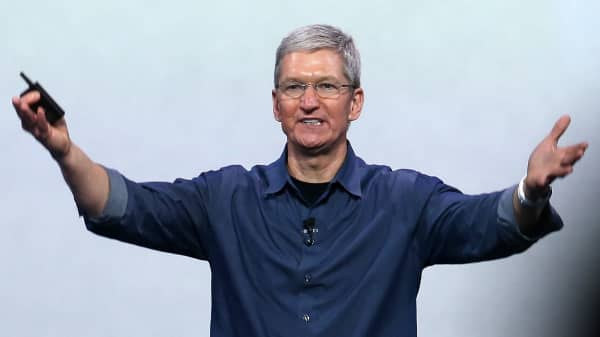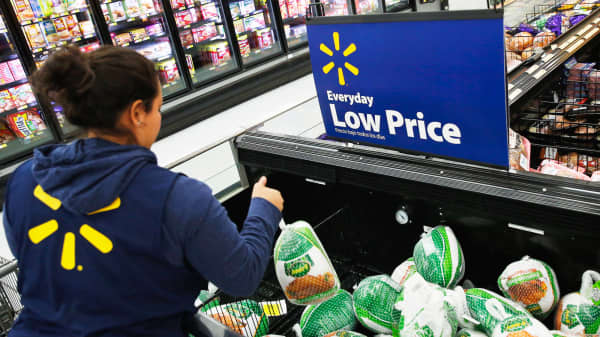Among those with detailed announcements:
- AT&T last month said it plans to invest an additional $1 billion in the United States this year and pay a special $1,000 bonus to more than 200,000 AT&T U.S. employees.
- Walmart will raise its starting minimum wage to $11 an hour and award worker bonuses of between $200 and $1,000, depending on years of service.
- Comcast, the parent company of CNBC, said it will award a special $1,000 bonus to more than 100,000 workers.
- Boeing last month announced plans to invest an additional $300 million as a result of the new tax law.
- Wells Fargo said it will raise its minimum hourly pay rate to $15 and target $400 million in 2018 for philanthropic contributions.
- Bank of America last month said U.S. employees making up to $150,000 per year — or about 145,000 workers — would get a one-time year-end bonus of $1,000.
- PNC Financial said it would give a $1,000 bonus to about 47,500 workers; add $1,500 per eligible worker to the defined benefit pension plan; raise the minimum wage to $15 a hour by the end of 2018; contribute $200 million to the PNC's charitable foundation.
- U.S. Bancorp said it will pay a one-time, $1,000 bonus to nearly 60,000 employees; raise the minimum wage to $15 for all hourly employees; make a one-time, $150 million contribution to the U.S. Bank Foundation, and make enhancements to employees' health-care offerings effective for the 2019 enrollment period.
- Visa said it would raise the level of matching contributions to its employees' 401k accounts, to 10 percent from the previous level of 6 percent.
Some of the companies contacted by CNBC — including Goldman Sachs, Verizon, Walgreens and Intel — said they are analyzing the impact of the tax changes and may make announcements in the months ahead. A few said they planned to provide details on upcoming earnings calls.
Dozens of other large companies have also announced specific plans to pay bonuses. But collectively, they represent a tiny portion of the American workforce.
It's also unclear how smaller employers will deploy any savings from the new tax law. Roughly half of all American workers are employed by companies with payrolls of fewer than 500 workers, according to the Small Business Administration.
Proponents of the tax law argue that lower taxes will help smaller companies boost wages as they compete to hire workers in a tight labor market. Yet some economists, including Joel Naroff, chief economist at Naroff Economic Advisors, doubt that most small businesses will see a big enough windfall to pass those savings along to workers.
"That means the bonus and minimum wage announcements make for good PR, but not necessarily strong income gains for workers," he said.
CNBC will update this survey as additional companies respond.









